Gitcoin Grants 18 Giving Guide (With Ten Featured Items)
On the evening of August 15th, Gitcoin launched a new round of donations Gitcoin Grants 18. This round of donations will last until August 29th, and plans to use a secondary matching mechanism to provide grants for all core rounds (Core Rounds). Provides $1 million in matching funds.
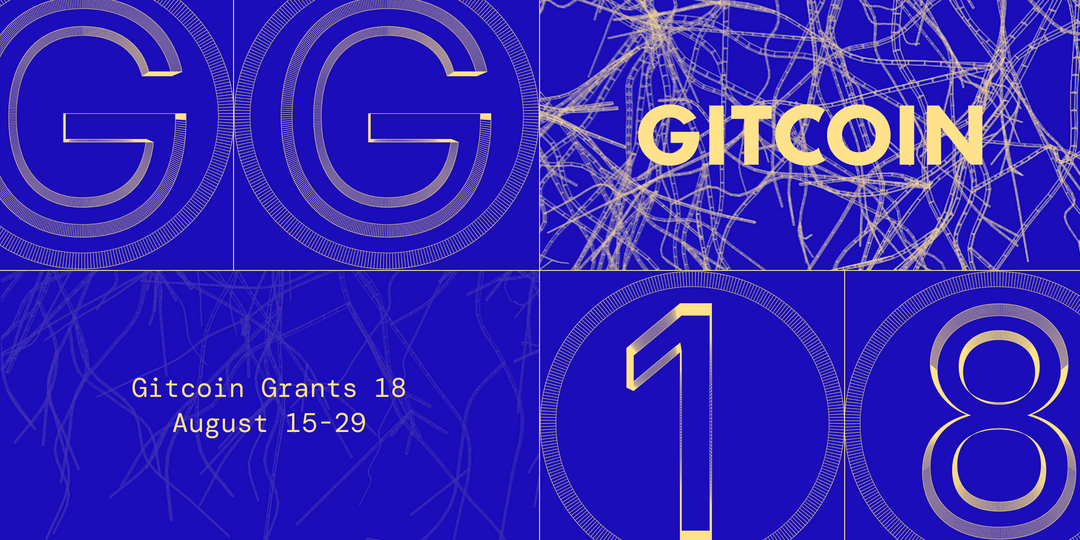
Gitcoin’s current round of donations covers four core rounds, all of which are voted by the community, including Web3 Open Source Software, Web3 Community and Education, Climate Solutions, and Ethereum Basics Facilities and other four categories.
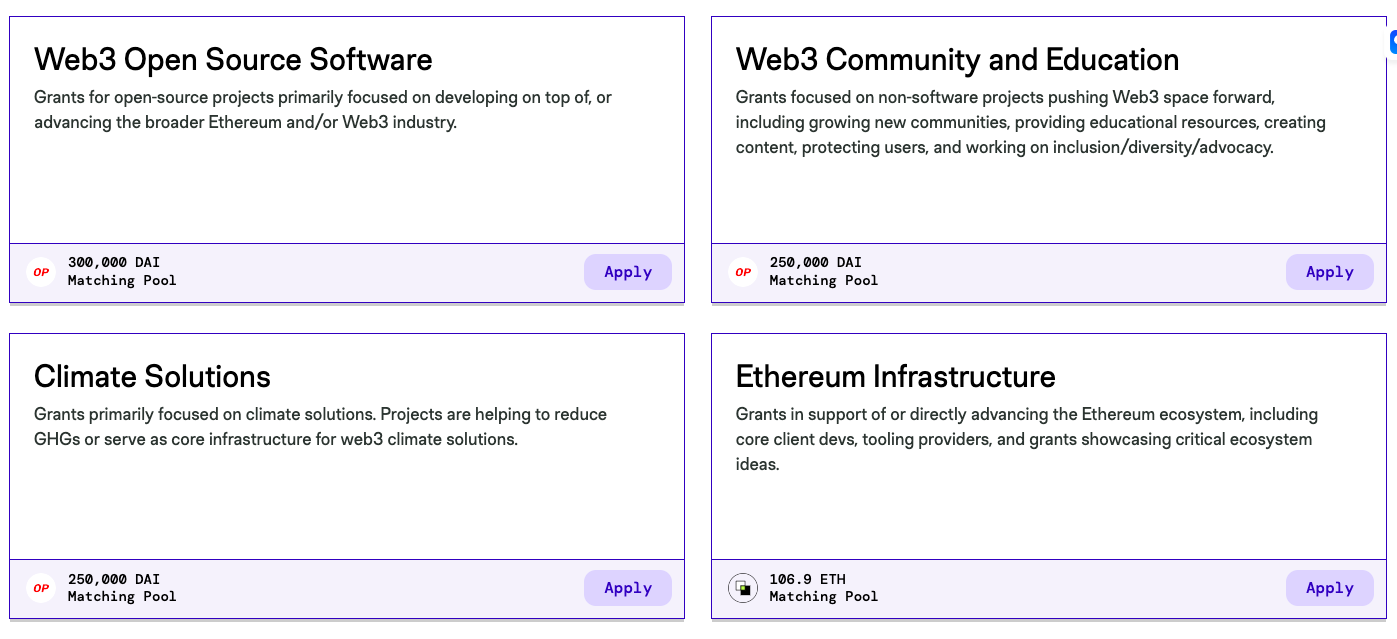
In addition, this beta donation round also provides multiple featured rounds (Featured Rounds) such as Web3 Social and Token Engineering. These rounds cover partner projects that are consistent with Gitcoins vision, but all The amount of funding matched is much smaller than the core round.
Next, I will select some projects that I personally like in this round and take you through the entire donation process.
Core Round: Web3 Open Source Software
Project one:EVM Diff
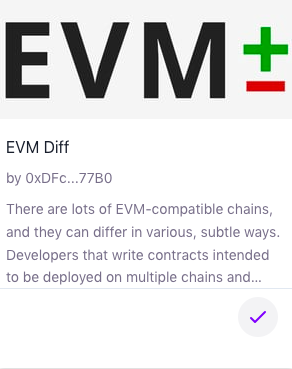
The number of EVM-compatible chains is growing, but since complete equivalence has not been achieved, there are still various subtle differences in the development environments of each chain. Developers need to pay attention to these differences to prevent unexpected program failures (zkSync Era There have been projects on the Internet that accidentally locked up funds due to this).
At present, the path to find this information is quite cumbersome. Developers may be able to consult the technical documents of each chain, but these documents often have timeliness issues. op-geth may be a usable code comparison website, but for developers This comparison method is too low-level and difficult to understand.
EVM Diff hopes to solve this current development pain point by providing an easy-to-read way to compare the differences in execution level specifications of various EVM compatibility chains. According to the disclosure on the donation interface, EVM Diff plans to cover the metadata, pre-deployment, opcodes and transaction/signature types of Ethereum mainnet, Arbitrum, Optimism and other chains, including ABIs and logical contract addresses pre-deployed behind the agent. .
Project two:FundPG
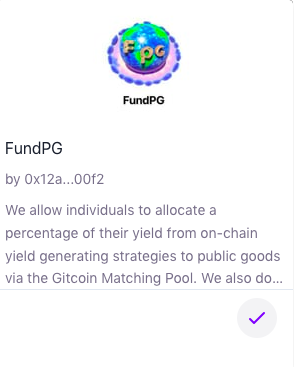
FundPG aims to provide a more sustainable public goods funding mechanism. The project allows individuals to divest part of their on-chain revenue farming through the Gitcoin matching pool and use it for public goods donations (sounds a bit like gtcETH) .
In addition to this, FundPG is building open source analytics tools to track the on-chain flow of funds used for public goods.
Item three:Sybil-scorer
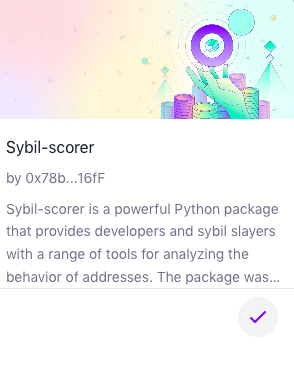
Sybil-scorer is an open source Python toolkit that provides developers with a series of tools for address analysis to help projects find and filter sybil addresses.
Sybil-scorer is mainly divided into three main tools: sbdata, sblegos and sbutils.
sbdata allows developers to quickly retrieve large amounts of data from the flipside API, including address transaction data; sblegos is the core of Sybil-scorer and provides a series of analysis logic for witch behavior monitoring, including transaction similarity analysis, etc.; sbutils provides An easy way to use sbdata to extract data for use in sblegos.
In the future, Sybil-scorer will focus on adding new analysis logic and planning to incorporate temporal features into the algorithm. In addition, Sybil-scorer will also study the use of tags in the flipside API to filter similar wallet addresses in the future.
Core Round: Web3 Community and Education
Project one:ZachXBT(Maybe it shouldn’t be called a project)
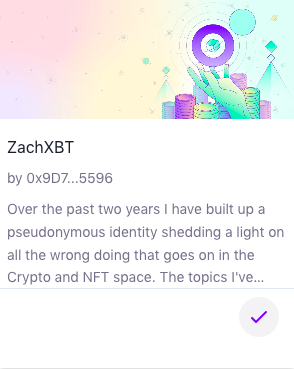
Friends who frequent Twitter may be familiar with this name. ZachXBT is an anonymous Twitter account that specializes in revealing various industry chaos. Many netizens call it an on-chain detective.
ZachXBTs more well-known investigation cases include: Huang Licheng was accused of a series of frauds. The latter tried to sue ZachXBT, but finally chose to withdraw the lawsuit. In addition, JPEGd was stolen for more than 6,000 ETH a few days ago, and ZachXBT later found out The attack, which may have been linked to Twitter user @MichaelRazum, returned the stolen money to JPEGd shortly after the investigation was published.
With this donation, ZachXBT said all funds received will be used for equipment upgrades, future legal fees, and what readers feel is the value of their time.
Project two:JobStash
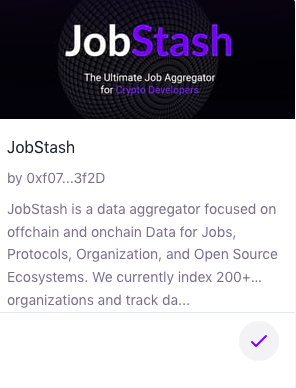
JobStash is a data aggregation platform for recruitment information, providing job recruitment information for major organizations, protocols, and open source ecosystems.
JobStash currently indexes over 200 organizations and tracks data for thousands of jobs. JobStash is completely independent and has no charging mechanism. For security reasons, the platform temporarily only aggregates job opportunities provided by organizations with a certain reputation in the community to avoid potential malicious fraud.
Item three:EIPsInsight
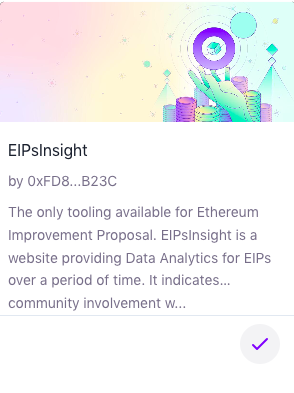
EIPsInsight is a tool for Ethereum Improvement Proposals (EIPs). It provides detailed information on all past EIPs and presents the dynamic changes of various categories of EIPs in the form of data and charts, allowing developers and Users can more clearly capture and understand the upgrade trend of Ethereum.
Core Round: Climate Solutions
Project one:Litter Token
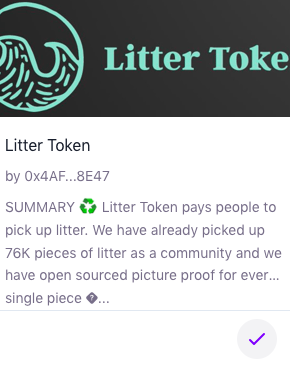
Litter Token is simply a pick up litter to Earn project. Users pick up litter and upload proof in discord, and the community will pay you LTK tokens (which can be redeemed).
Currently, Litter Token has been promoted to 10 countries including Brazil, Nigeria, Tanzania, Uganda, Colombia, the United States, the Dominican Republic, South Africa, the Philippines and Puerto Rico. Community members have collected 76,000 pieces of garbage, and every act of picking up garbage Have open source picture proof.
Core Round: Ethereum Infrastructure
Project one:Ethscriptions
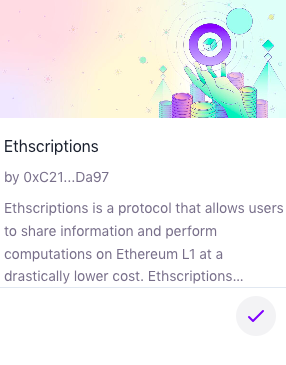
Ethscriptions is a new protocol designed to allow ordinary users to perform decentralized computing at a reasonable price, applying deterministic protocol rules by bypassing the storage and execution of all smart contracts."Simple"Using Ethereum calldata to compute state, Ethscriptions allows users to share information and perform computations on the Ethereum mainnet at a dramatically reduced cost.
Ethscriptions went live on June 17th, and as of today, over 1 million ethscriptions have been created with a transaction volume of over $2 million.
Project two:Stereum
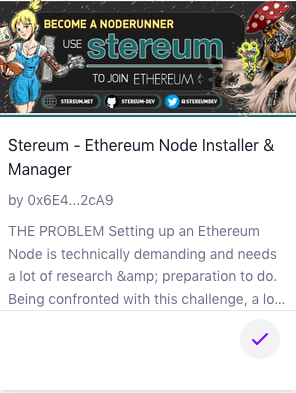
Stereum is an Ethereum node installation, setup and management tool.
Setting up an Ethereum node is technically demanding and requires a lot of research and preparation. Faced with this challenge, many people have chosen to use various staking services. This choice is understandable, but it inevitably exacerbates the centralization of Ethereum.
Stereum hopes to remove barriers for users who are willing to run an Ethereum node but lack the relevant knowledge. Stereum It provides an intuitive GUI that simplifies the node installation process with just a few clicks, thereby reducing the barrier to entry and complexity. Stereum hopes to attract more users to deploy nodes and promote the decentralization of Ethereum.
Featured Round: Token Engineering
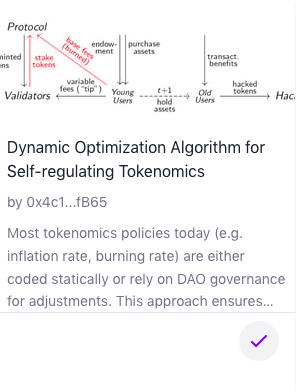
The literal translation of the project is a self-adjustable token economic model dynamic optimization algorithm.
Currently, most token economic model designs are either statically coded or rely on DAO governance for adjustment. This approach ensures decentralization, but the lack of a real-time response mechanism makes the model vulnerable to external shocks, such as large price fluctuations and hacking attacks.
The project proposes a new dynamic adjustment model that aims to allow the token economic model to self-adjust according to specific circumstances based on two key parameters (staking rate, destruction rate).
Judging from the donation homepage, the developer of this project should be a Chinese student studying at the University of Chicago. This project is also the topic of his masters thesis. It is estimated that the project will take 4-5 months, at most Over 8 months, it will open source the paper content and related code on Github.
How to make a donation?
First, before donating, you need to checkGitcoin Passport, an on-chain identity credential that is scored based on the historical activity of the address, in order to prevent the increasing prevalence of Sybil attacks.
The status of Gitcoin Passport will be reset every 90 days. Only when the status is in the latest version and the score exceeds 20 will the second matching mechanism be triggered in this round of donations—in simple terms, if you donate a sum of money, Gitcoin will also be synchronized Donate a sum (you can donate if you dont reach the score, but you cant trigger a match).
Next, we can make donations. By clicking the shopping cart icon at the bottom right of each item in each round, we can add it to the to be donated queue.
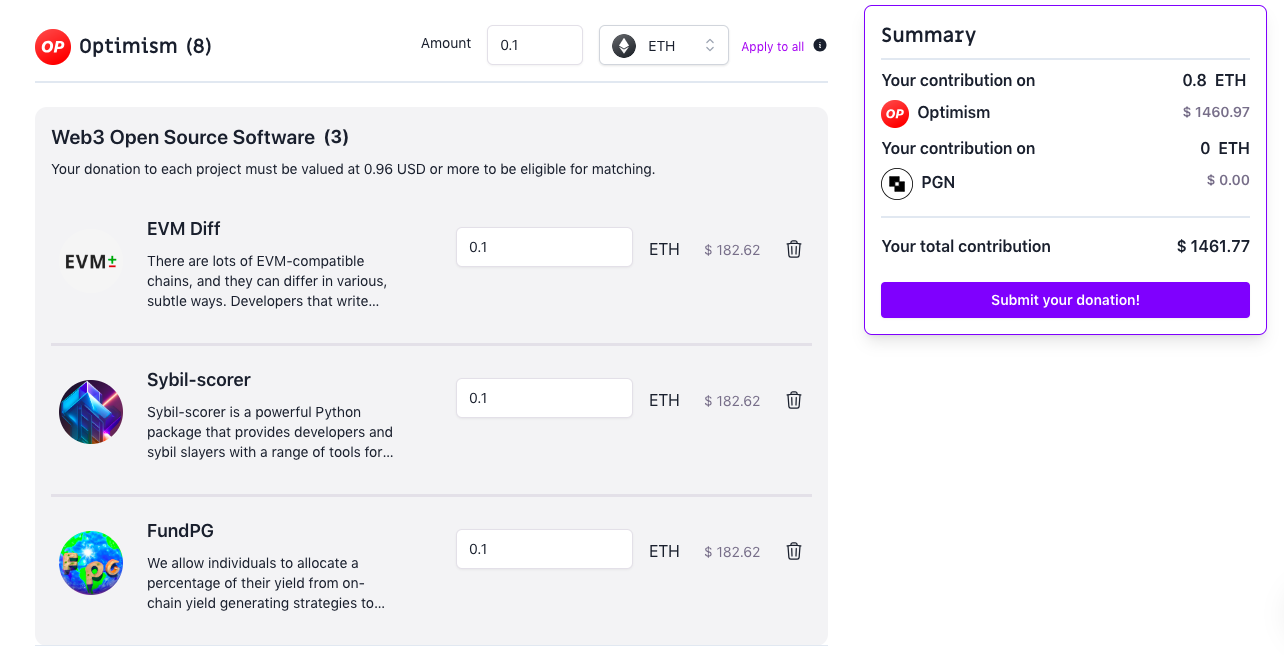
Next, it’s time to make money. We can choose to donate in DAI or ETH, and the amount can be customized. After confirming the specific amount, click Submit your donation on the right to submit the transaction. I personally recommend that you choose ETH for donation, because using DAI will have an additional authorization transaction, which requires more gas fees.
Most of the operations of this round of Gitcoin donations can be completed on the OP Mainnet, but the core round of Ethereum Infrastructure needs to be completed on the PGN network, requiring additional bridging operations, but compared to the previous Beta round (only supports Ethereum Fangzhu.com) still optimizes the user experience to a certain extent.
After the transaction is confirmed, the Gitcoin interface will jump and a word of thanks will pop up.
The entire donation process is now complete. Thank you for your contribution to the ecological development of the chain.



